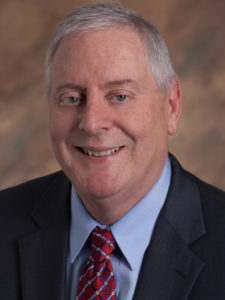by Allen J. Karp, Senior Vice President of Healthcare Management for Horizon Blue Cross Blue Shield of New Jersey
View the entire newsletter for more articles: 2017 – NJAC County Biz – June
Our healthcare delivery system is caught in a time warp. At one end of the spectrum, medical technology and approaches to care have never been more advanced. Yet, the way our health system is organized and financed is a relic of the past, making health care more expensive, untethered to quality and economically unsustainable.
Health care costs in the U.S. have risen annually and now top $3 trillion, or about 18 percent of US GDP. Increased spending hasn’t translated to improved care quality. About 30 percent of health care spending does nothing to actually improve a person’s health.
Health insurance premiums reflect the underlying cost of care. Premiums are pressured higher as costs for hospital stays, prescription drugs and general medical care rise. New Jersey residents and employers feel these costs disproportionately. New Jersey is the fourth most expensive state for family health coverage.
What are driving these trends? Uncoordinated care and our antiquated fee-for-service system.
Horizon believes that through collaboration with doctors, hospitals and health care professionals, we could begin to replace the fee-for-service system with one based on value.
About 1.4 million Horizon members are now part of value-based models, such as Accountable Care Organizations, Patient-Centered Medical Homes, Episodes of Care and the OMNIA Health Alliance. The common thread of these models is a commitment to better care, a better health care experience for the patient and lower health care costs.
Horizon’s Episodes of Care programs offer insights into how value-based care works. An episode is generally described as a medical circumstance that unfolds during a defined time period – often from diagnosis to the final stage of discharge. Horizon has 18 active EOCs, which range from Crohn’s disease to hip/knee replacement.
Horizon collaborates with physicians, sharing data that identifies the best candidates for the episodes, and together we define goals for the EOC patients as they move from one step of the episode to the next.
Horizon shares information about the care and cost of care for patients throughout the episode, so that physicians may see where there are opportunities for improvement. At the end, physicians are compensated with payments if they meet their goals. Meeting goals creates value for the patient, the doctors and Horizon, and savings generated are shared with the partner physicians.
These episodes shatter the myth that less care is less expensive care. In fact, more resources are concentrated on the patient to ensure that care is delivered at the right time, in the right setting, and with quality as the driving motivation. Doing so helps patients recover more quickly, avoid future ER visits and hospital re-admissions.
2015 results from Horizon’s value-based program show that patient-centered Horizon members, as compared to those members in traditional practices, had a 5 percent lower rate of ER visits and a 2 percent lower rate of hospital admissions. We can improve care and promote wellness while lowering costs.
We deserve an integrated, coordinated and value-based health care delivery system. Horizon will continue to work with our providers to bring this care approach to our members and employer groups. We are committed to helping New Jerseyans lead healthier and happier lives while wringing excessive and unnecessary costs out of the delivery system.
For further information about Horizon Blue Cross Blue Shield of New Jersey, please call 1-800-355-BLUE (2583) or visit www.horizonblue.com

